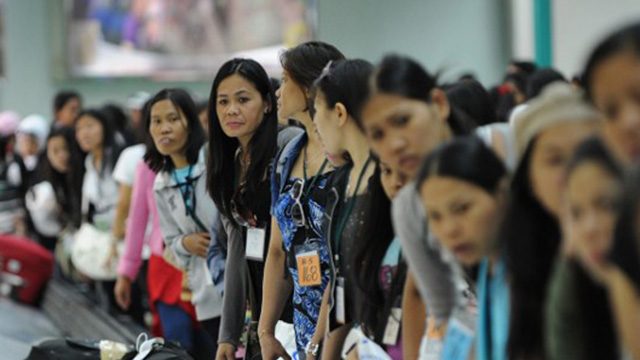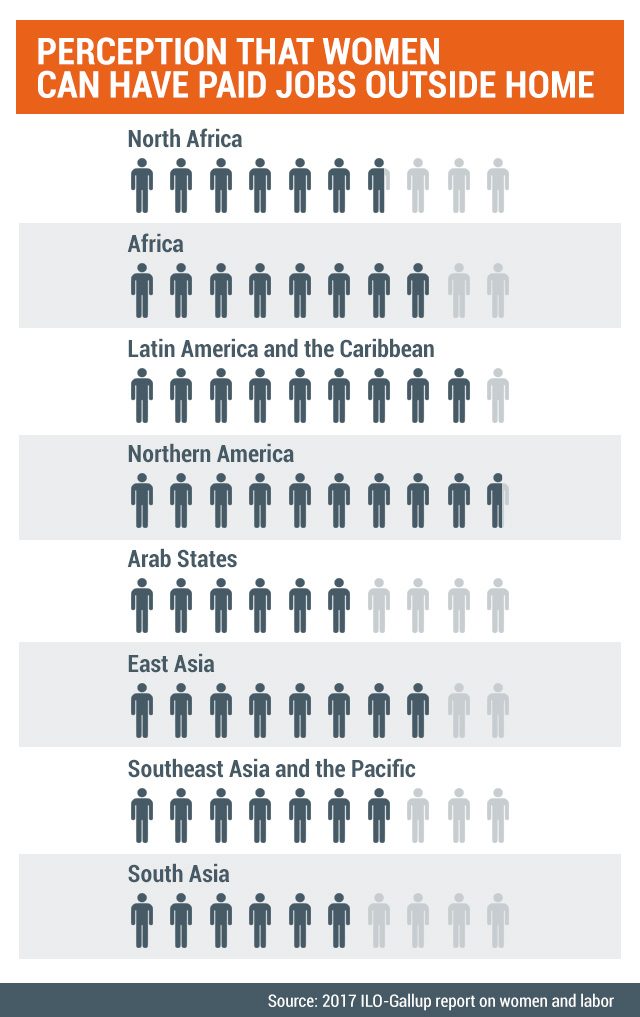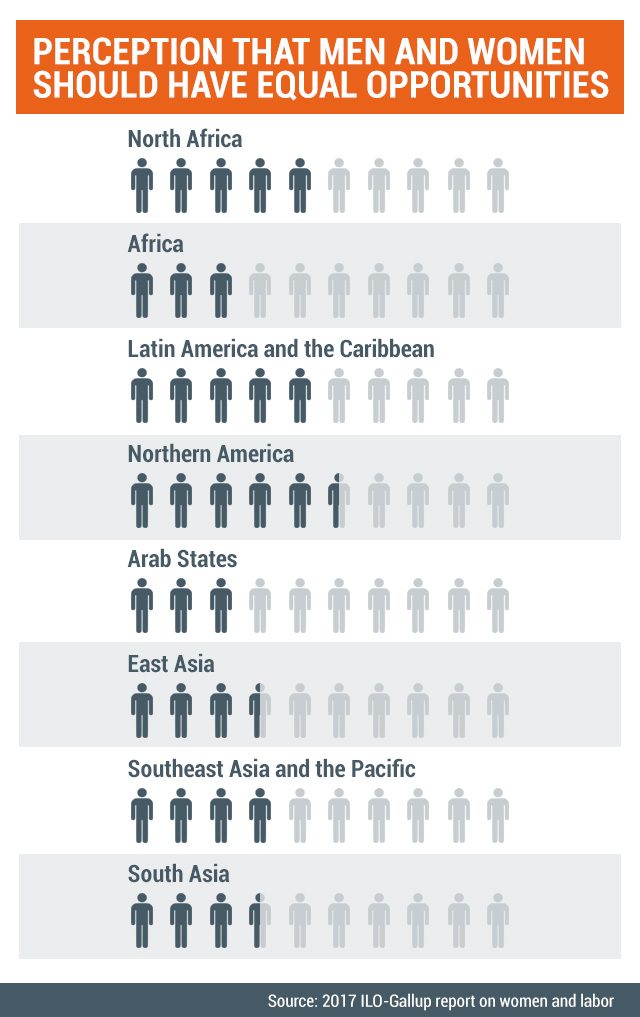SUMMARY
This is AI generated summarization, which may have errors. For context, always refer to the full article.

MANILA, Philippines – A new study conducted by the International Labor Organization (ILO) indicates that people nowadays are becoming more open to the idea of women working outside the home.
Based on the ILO-Gallup report titled “Towards a better future for women and work: Voices of women and men”, 80% of people worldwide agree that it is “acceptable for women to work at paid jobs outside the home.”
The study that was released on the celebration of the International Women’s Day on Wednesday, March 8, surveyed 149,000 adults in 142 countries and territories. ILO said this represents more than 99% of the global adult population.
Of the respondents who prefer women’s participation in the labor force, 70% are women and 66% are men. ILO noted that majority of these women are not in the workforce.
Meanwhile, 27% of women surveyed said they prefer to stay at home.
The acceptance of more working women rings true for all of the world regions, including Arab States and territories where women’s labor participation is normally low. The areas with the highest rates are North America, Latin America and Africa, respectively.

Among the Asian regions, East Asia has the highest rate at 82%, followed by Southeast Asia and the Pacific (77%), and South Asia (64%). East Asia is where industrial countries such as China, South Korea and Japan are located.
In Southeast Asia, the Philippines is among those with the highest acceptance rate of working women at 88%. (READ: IN NUMBERS: Women in PH politics and Get to know the women National Artists and Scientists)
“This survey clearly shows that most women and men around the globe prefer that women have paid jobs. Family-supportive policies, which enable women to remain and progress in paid employment and encourage men to take their fair share of care work, are crucial to achieving gender equality at work,” said ILO Director-General Guy Ryder.
Work challenges
Despite women being free of the domestic stereotype, balancing work and family duties is a top problem of working women globally.
Unfair treatment, abuse, harassment in the workplace, lack of good-paying jobs and unequal pay are still among the problems that exist in different regions.
“In sub-Saharan Africa, for example, about as many cite reasons that fall into the response category of ‘unfair treatment/discrimination” in the workplace (19%) as mention work-family balance (18%). In Northern, Southern and Western Europe, more mention work-family balance, but equal pay is also viewed as an important challenge,” said the ILO in its summary of the report.
“In Northern America, people are most likely to cite unequal pay (30 percent), followed by work-family balance (16 per cent) and unfair treatment/discrimination (15 per cent). In Northern Africa, sub-Saharan Africa, Southern Asia and the Arab States, “family members do not approve of women working” is among the top five most frequently mentioned obstacles that working women face.”
Equal opportunities
The report also found that both men (41%) and women (39%) think they should have equal job opportunities if they have the same level of education and experience.
On the other hand, more men (29%) than women (25%) think women have more opportunities in finding better jobs. These trends vary from region to region.

“Northern America, for example, leads other regions in terms of perceived equal opportunity. The majority in the region (55%) say a woman with similar qualifications as a man has the same opportunity to find a good job. Men (60%) are more likely than women (50 per cent) to feel this way,” said the ILO.
“Northern, Western, and Southern Europe as well as Eastern Europe, on the other hand, lead other regions in terms of perceiving worse opportunities for women who have similar experiences and educational qualifications as men,” it added. – Rappler.com
Add a comment
How does this make you feel?
There are no comments yet. Add your comment to start the conversation.